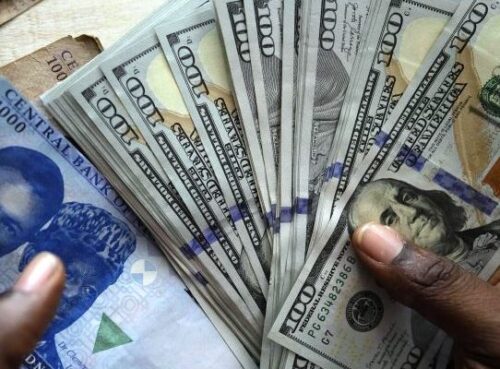
Naira has appreciated against the British pound, euro, and Canadian dollar since the introduction of the Electronic Foreign Exchange Matching System (EFEMS) by the Central Bank of Nigeria (CBN).
On November 26, 2024, the CBN directed all banks operating in the interbank foreign exchange market to adopt the Bloomberg BMatch System for FX trading. This system, which became operational on December 2, 2024, was designed to enhance market transparency and efficiency.
Since its implementation, the naira has gained significantly against major currencies such as the British Pound, the Euro and the Canadian Dollar, reflecting a reduction in the exchange rate gap between official and parallel market rates. According to CBN data, the naira has appreciated by ₦157.50 per dollar since the introduction of EFEMS, reflecting a 10.48% increase from ₦1,660/$ on December 2, 2024.
The Monetary Policy Committee (MPC) attributes the foreign exchange market stability to the strengthening of the naira, alongside a gradual reduction in fuel prices. They emphasized that improvements in the external sector—including the narrowing gap between the Nigeria Foreign Exchange Market (NFEM) and the Bureau de Change (BDC) rates—are crucial for sustaining market confidence.
Governor Olayemi Cardoso of the CBN stated that the introduction of the Electronic Foreign Exchange Matching System (B-Match) and the Nigeria Foreign Exchange Code has reinforced transparency, ethics, and credibility in FX trading which are expected to attract foreign direct investment (FDI), portfolio investments, and diaspora remittances.

On November 2024, the CBN issued new guidelines for interbank FX trading through EFEMS, setting a minimum tradable amount at $100,000 with incremental clip sizes of $50,000 to enhance market efficiency. Omolara Duke, the CBN’s Director of Financial Markets, highlighted that EFEMS aims to ensure fair, transparent, and efficient FX trading while reducing counterparty risks.
A report by Afrinvest Securities Exchange Limited revealed that Nigeria’s foreign reserves declined by 0.8% ($320.6 million) in the week ending February 20, 2025, bringing total reserves to $38.8 billion. The drop is attributed to the CBN’s continued dollar supply to commercial banks and BDCs to support the naira.
Despite the decline in reserves, the naira appreciated by 1.0% in the official market and 4.0% in the parallel market, closing at ₦1,494/$ and ₦1,495/$, respectively. The narrowing of the exchange rate gap—from ₦45.30 to just ₦0.97—indicates improved market stability.
Analysts at Afrinvest anticipate that the naira will sustain its upward momentum, provided the CBN continues to supply dollars to BDCs and Deposit Money Banks (DMBs) while mitigating market shocks. Muda Yusuf, CEO of the Centre for the Promotion of Private Enterprise (CPPE), acknowledged the CBN’s progress in stabilizing the FX market, but cautioned that black market volatility remains a challenge.
Despite the recent appreciation of the naira, Bismarck Rewane, CEO of Financial Derivatives Company (FDC), urged policymakers to exercise caution. Speaking on Channels TV, he described the naira’s rapid strengthening as temporary, warning that structural issues could lead to market corrections.
He pointed out that Nigeria’s foreign reserves have fallen below $40 billion, with $8 billion already spent on FX interventions, including $4 billion in bond issues. “We’re seeing the naira strengthen, but we must be cautious,” Rewane stated. “It’s a work in progress, and policymakers should not get carried away.”



